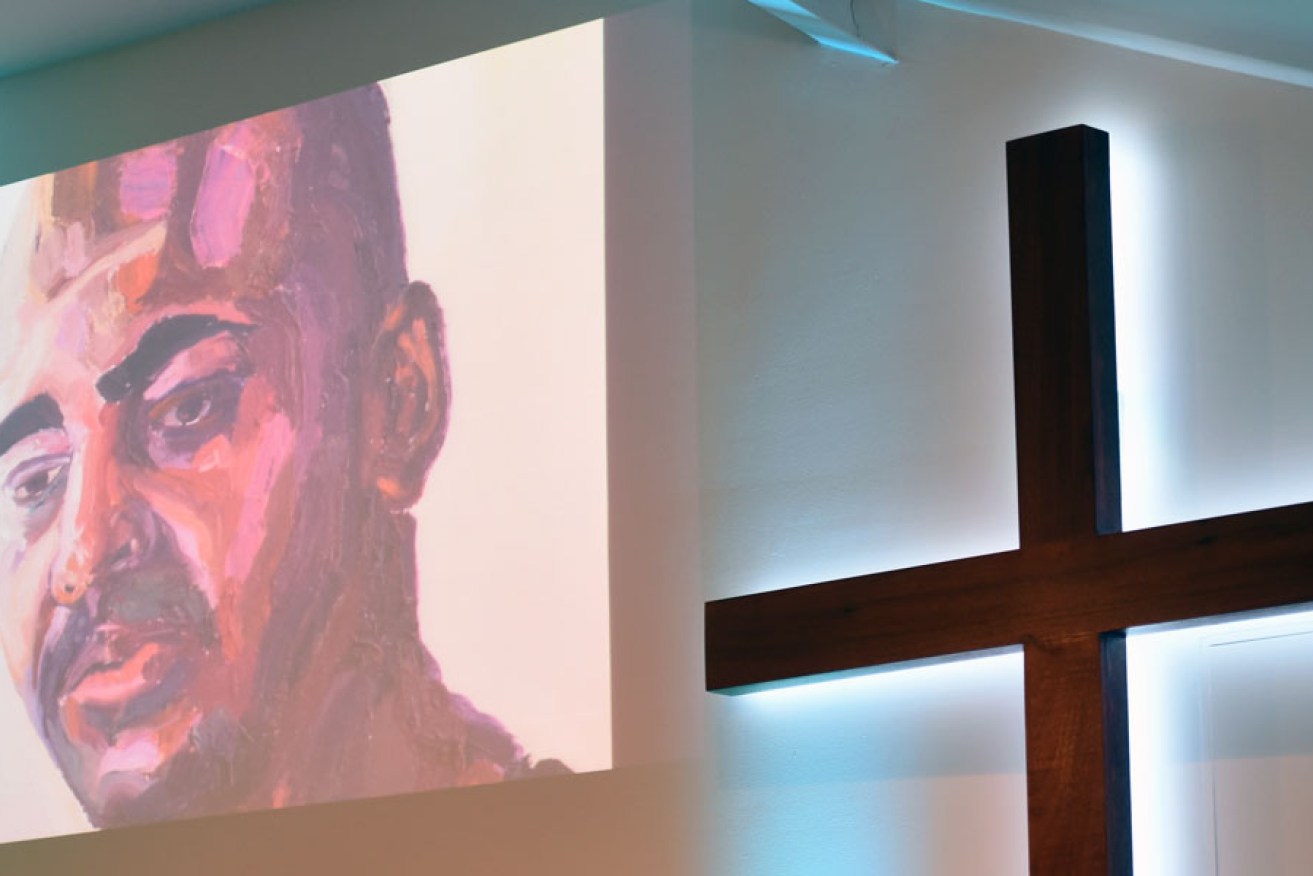Death penalty serves a domestic agenda


A self portrait of Myuran Sukumaran is projected onto the wall at a vigil for Sukumaran and Andrew Chan at the C3 church in Sydney.
The plight of the Bali 9 is sadly not the first time Australians in recent memory have faced the prospect of execution for serious drug offences abroad.
When I was at law school during the 1980s, Australia was mesmerised by the fate of Kevin Barlow and Brian Chambers who were convicted of serious drug offences in Malaysia. The sense of powerlessness experienced then is being replayed now, like a slow motion horror movie, in the cases of Myuran Sukumarin and Andrew Chan. What lessons can be learned?
Barlow and Chambers were convicted and sentenced to death by hanging in 1985. As with Sukumarin and Chan, appeals were lodged on behalf of Barlow and Chambers. Chambers at least had begun what might be considered rehabilitation by commencing biblical studies with a Catholic missionary. It is not the first time Saul has become Paul after being convicted of drug offences and sitting in a foreign gaol. Who can forget Michelle Leslie, the Australian model, who when convicted of drug offences in Indonesia mysteriously converted to Islam (Leslie was guilty of was possession of two ecstasy tablets)? On the other hand, who are we to judge, having never sat on death row and pondered from day to day, hour to hour, a life of incarceration or the end of our human existence?
The Barlow and Chambers appeal failed and, as we are seeing with the Federal Government’s pleas for Sukumarin and Chan, Australia’s then foreign minister Bill Hayden asked for clemency and a commuting of the death sentence. A letter was sent by the families to the Malaysian King in much the same way as the Indonesian President has been petitioned. Then Prime Minister Bob Hawke tried valiantly to prevent the inevitable. Among his public utterings, Mr Hawke described the method of punishment as “barbaric”. Similar invective has been used by commentators lamenting the plight of Sukumarin and Chan. The then Malaysian Prime Minister Dr Mahathir countered by pointing out that the punishment used had been invented by the West. Indeed, to keep things in perspective, our closest ally, the United States of America, executes many more people than Indonesia. Another close ally, Japan, also actively uses the death penalty.
In any event, Australian’s efforts were to no avail and Barlow and Chambers were hanged in Pudu Prison on 7 July 1986. It was in the last year of my law degree. I remember the day as if it was yesterday.
Barlow and Chambers died because Malaysia wanted to demonstrate to the world that it was serious about its then new and tougher drug laws. Irrespective of one’s view about the death penalty abroad, the key question is how could Malaysia have backed down? To do so would have caused a loss of face domestically. Just as our governments have wagered their reputations on ‘tough on crime’ agendas, so too did Malaysia.
As for Sukumarin and Chan, they have in a sense ended up with the wrong president. Susilo Bambang Yudhoyono may have stayed their execution; every sign is that his successor Joko Widodo will not.
These executions are not about justice or a proportionate penalty for wrongdoing; they are about what is perceived to be necessary in the present domestic political circumstances in Indonesia. Therein lies the hopelessness of the situation.
For the record I oppose the death penalty. To those who offer the view that these offenders knew of the death penalty and thus must abide it, I say that you are bereft of both logic and compassion. You either oppose or support using death as a penalty, irrespective of where and why offending occurs. There is no halfway house. I am unable to judge Sukumarin and Chan but I do know women and men are capable of redemption from their past evil deeds. The reason why our lady justice holds a sword in one hand but the scales of justice in the other is because justice requires a balancing between punishment and mercy. The death penalty leaves no room for the latter which is why I oppose it.
Whether all our efforts in the case of Sukumarin and Chan will change the outcome no one knows, but while the execution of Barlow and Chambers was in Malaysia not Indonesia, disturbing similarities exist. It throws up for us this question: what price for a human life? The answer is clearly different from one culture and country to another, but my only yardstick is what is acceptable in Australian terms and thus for me the answer is clear.
One matter is irrefutable. The more we “box in” the Indonesian President and his administration through our diplomatic language, the less the chance that he and his administration will be able to back down and keep face.
The lesson from Barlow and Chambers is that a chorus of Australian protest is less important to a foreign leader than the voices in his own backyard.
Morry Bailes is managing partner at Tindall Gask Bentley Lawyers, Member of the Executive of the Law Council of Australia and immediate past President of the Law Society of SA.
The opinions expressed in this column are his own.
His column appears in InDaily on every second Thursday.




